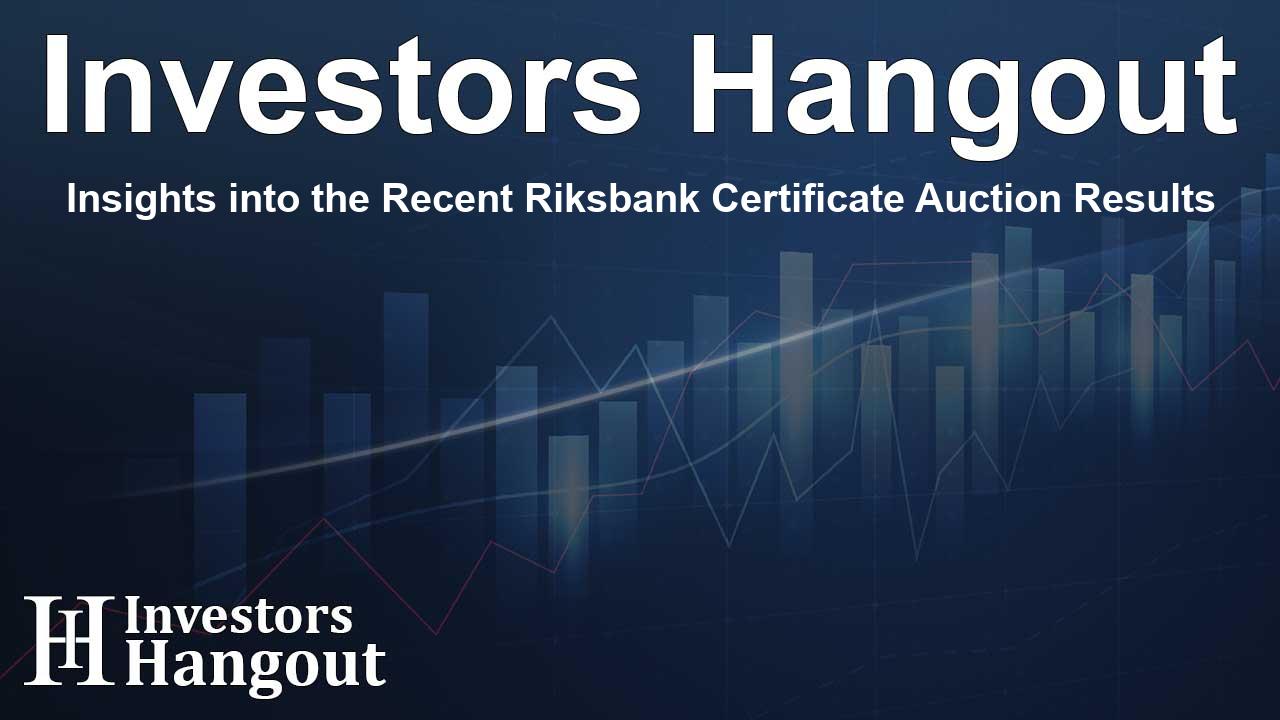Insights into the Recent Riksbank Certificate Auction Results

Understanding the Riksbank Certificate Sale
The Riksbank recently conducted a certificate auction that has caught the attention of financial analysts and investors. Understanding the dynamics of this auction provides insight into the current economic landscape.
Auction Overview
The auction took place within a structured format that included various essential metrics. It serves as a critical indicator for market liquidity and broader economic conditions.
Key Dates
The auction occurred on a specified date, vital for tracking market trends, while both the start and maturity dates establish the timeframes for investment and return. Although specific dates have been omitted, knowing these periods is valuable for strategic planning.
Interest Rate Influence
The interest rate set for the auction was 2.25%, a figure that can influence investment decisions. Investors closely monitor such rates as they reflect the central bank's approach to monetary policy.
Volume and Bidding Details
The total volume offered in the auction reached an impressive SEK 786 billion, with bids amounting to SEK 660.25 billion. This high demand indicates significant investor confidence even amid fluctuating economic conditions.
Acceptance Rates
All bids participated in the auction were accepted — a noteworthy aspect. This 100% allotment percentage suggests robust investor engagement and possibly growing economic stability.
Number of Participant Bids
A total of 20 bids were submitted during this auction, showcasing varied investor interest and strategies. Such participation levels are indicative of a competitive market where investors are keen to secure favorable terms.
Market Implications
Understanding the implications of these auction results sheds light on the economic environment. A successful certificate auction can signal confidence in the economy, while lower participation might indicate caution among investors.
Frequently Asked Questions
What is a Riksbank certificate?
A Riksbank certificate is a short-term security issued by the central bank, often seen as a low-risk investment.
How does the interest rate affect investments?
The interest rate determines the return on investment; a higher rate can attract more investors, while a lower rate might deter them.
What does the accepted volume represent?
The accepted volume indicates the amount of bids that the Riksbank agreed to, reflecting investor confidence and demand.
Why is the number of bids important?
The number of bids shows market interest; higher bids often suggest a healthier economic outlook.
What can we learn from the auction results?
Auction results provide insights into liquidity, interest rates, and overall economic sentiment, guiding future investment strategies.
About The Author
Contact Thomas Cooper privately here. Or send an email with ATTN: Thomas Cooper as the subject to contact@investorshangout.com.
About Investors Hangout
Investors Hangout is a leading online stock forum for financial discussion and learning, offering a wide range of free tools and resources. It draws in traders of all levels, who exchange market knowledge, investigate trading tactics, and keep an eye on industry developments in real time. Featuring financial articles, stock message boards, quotes, charts, company profiles, and live news updates. Through cooperative learning and a wealth of informational resources, it helps users from novices creating their first portfolios to experts honing their techniques. Join Investors Hangout today: https://investorshangout.com/
The content of this article is based on factual, publicly available information and does not represent legal, financial, or investment advice. Investors Hangout does not offer financial advice, and the author is not a licensed financial advisor. Consult a qualified advisor before making any financial or investment decisions based on this article. This article should not be considered advice to purchase, sell, or hold any securities or other investments. If any of the material provided here is inaccurate, please contact us for corrections.
